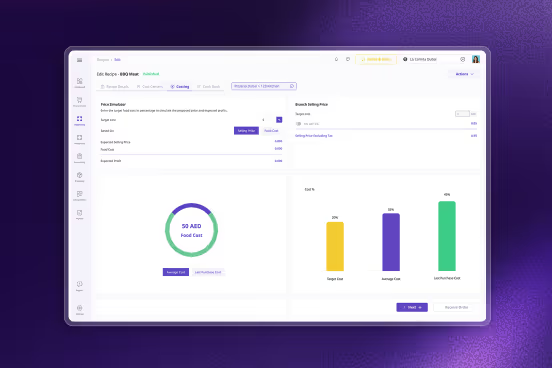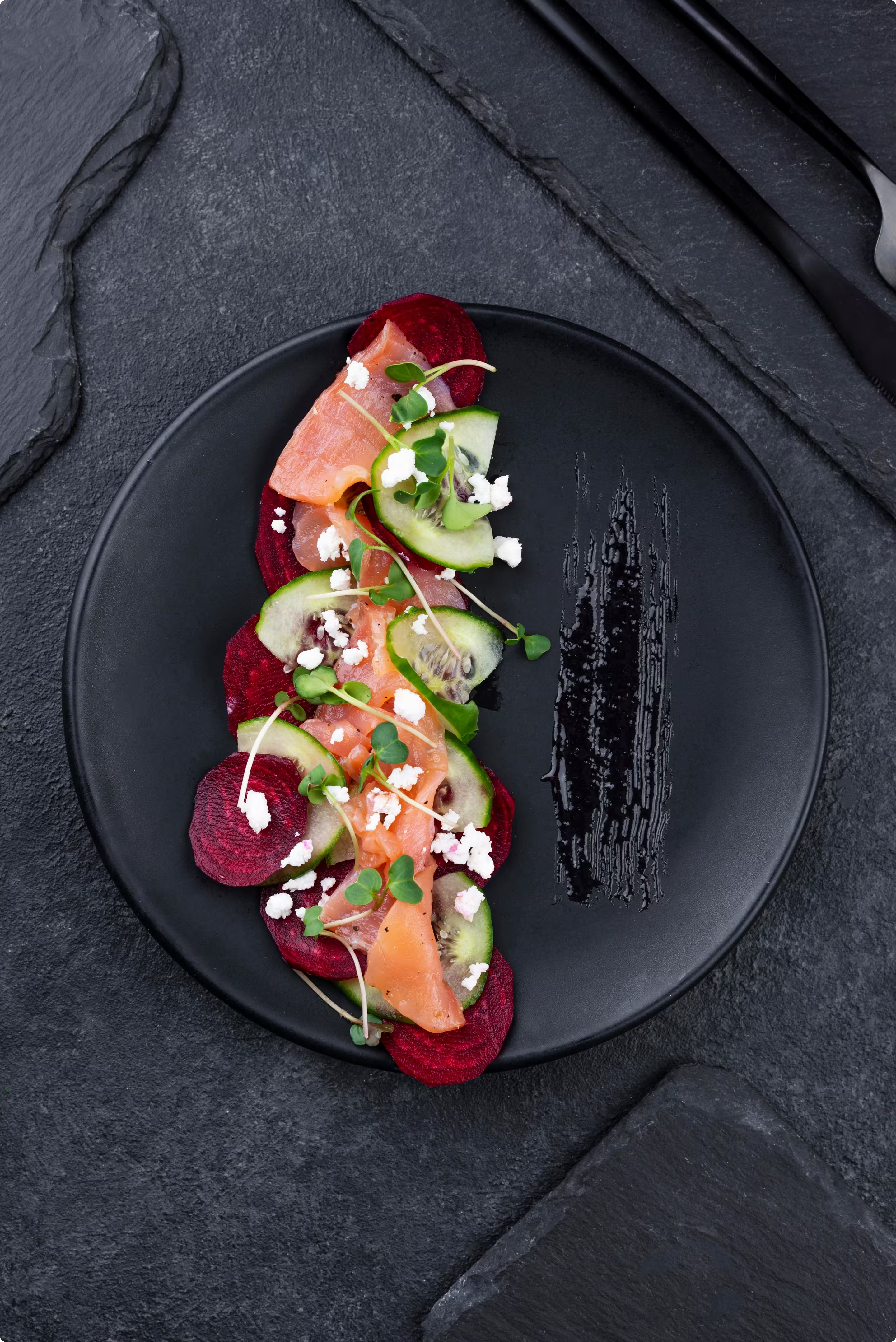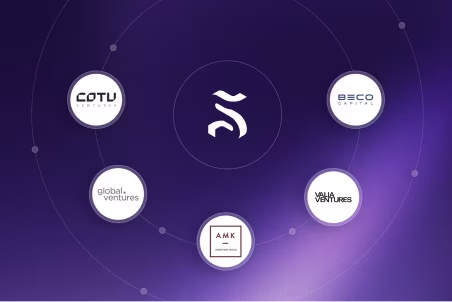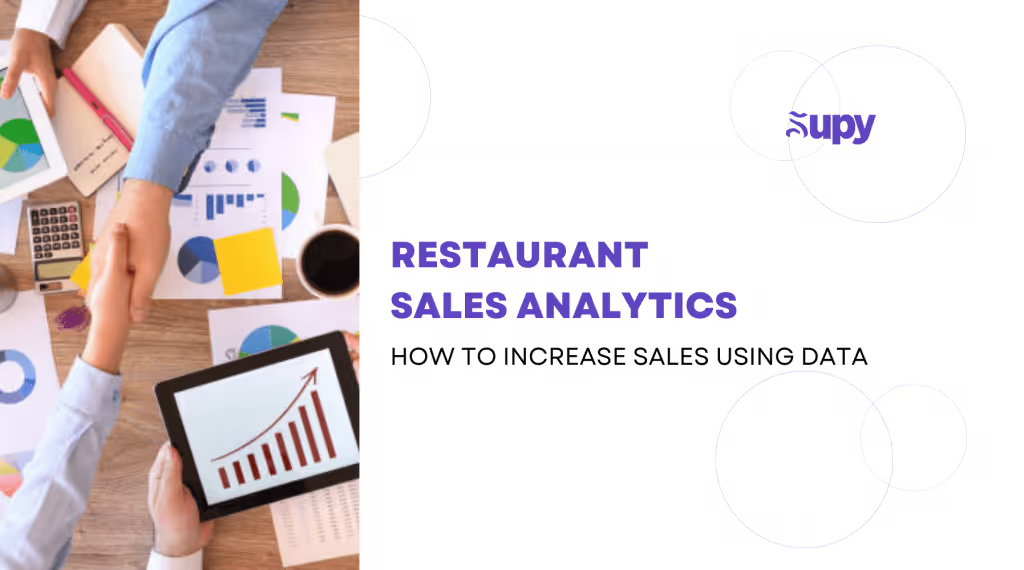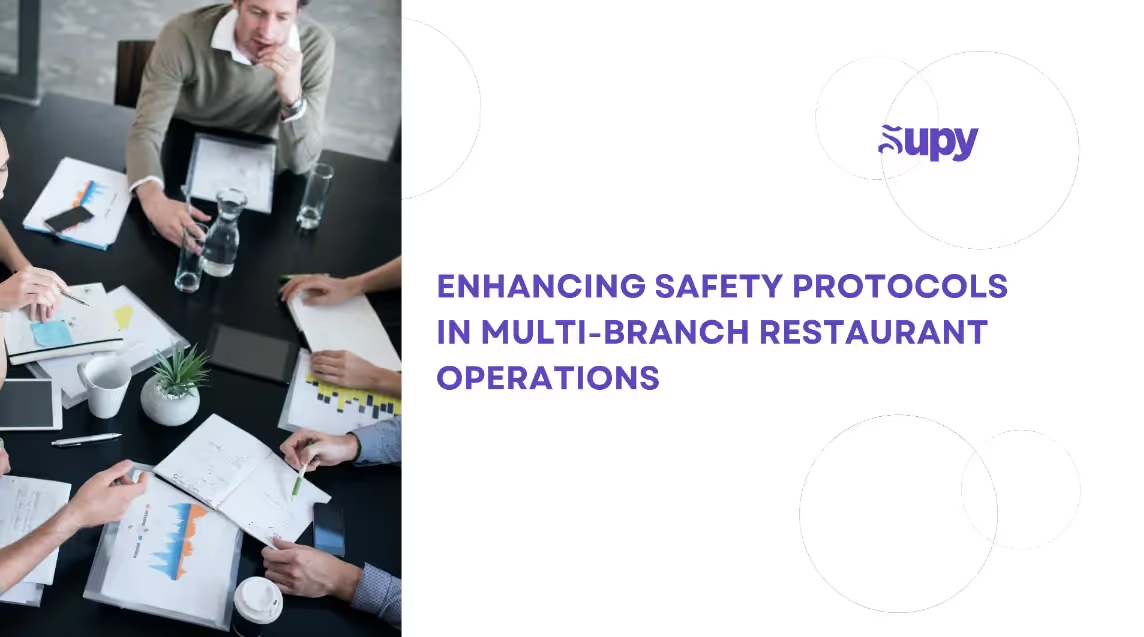Building Strong Supplier Relationships for Consistent Quality and Cost Savings
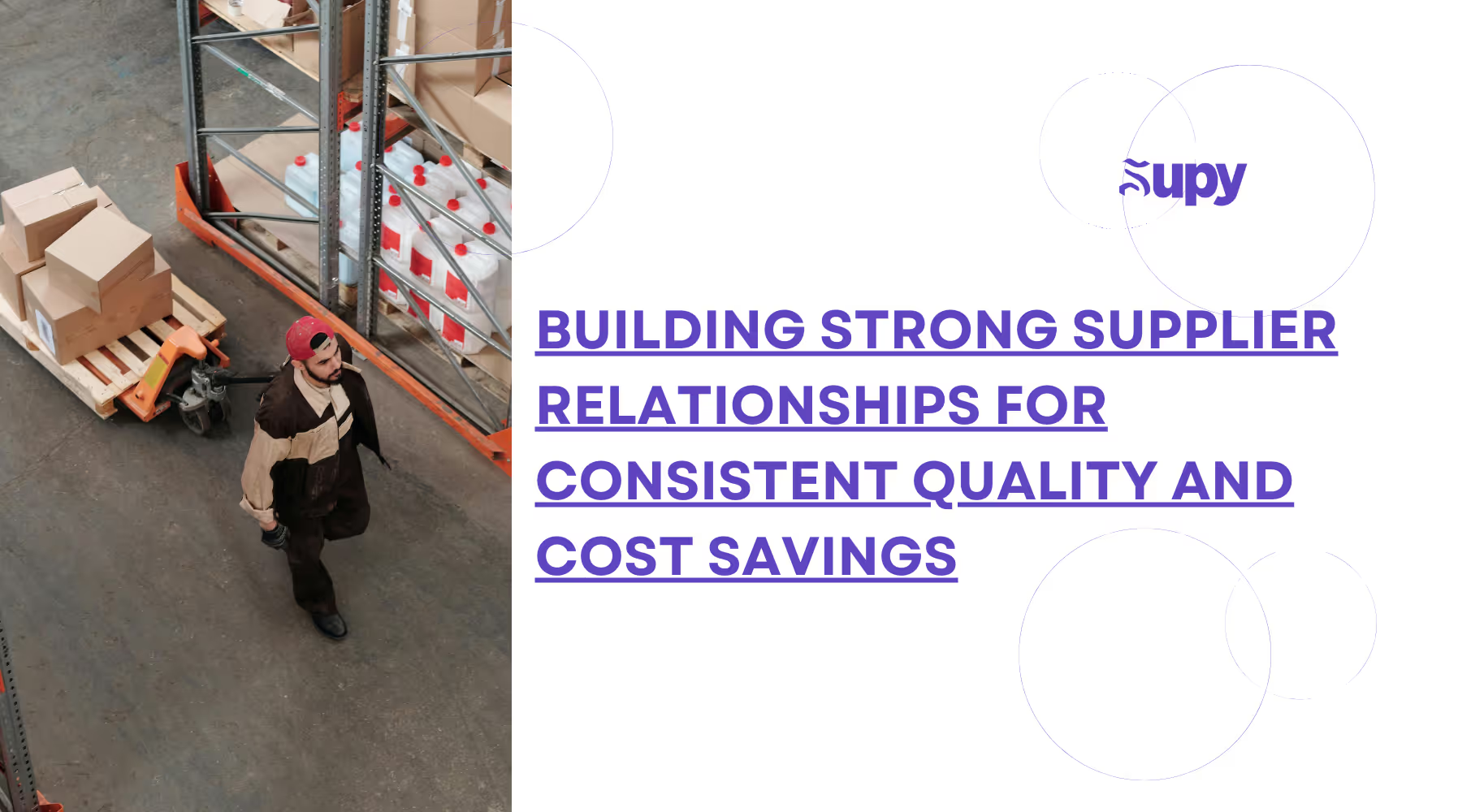
Many people in the food and beverage industry would be quick to tell you that supplier relationships are pivotal to the success of your business. Indeed, a strong supplier relationship can help ensure that your ingredients are of the highest quality, obtained at a mutually beneficial rate, and always delivered right on time. When suppliers trust your business and view it as a reliable partner, they have even been known to extend exclusive benefits, such as priority services, better rates, and access to exciting, unique products. Hence it is easy to see how supplier relationships can directly impact customer satisfaction rates and overall profit margins!
However, running a multi-location restaurant chain means you may face several challenges when it comes to maintaining supplier consistency. According to the Entrepreneurial Chef, issues like varied geographic supply chains, fluctuating demands across each location, and the logistical complexity of managing multiple vendor relationships can lead to inconsistencies in quality and service reliability.
- Why Strong Supplier Relationships Matter
- The Key Elements of an Effective Supplier Partnership
- Strategies for Cultivating Excellent Supplier Partnerships
- The Role of Technology in Supplier Relationship Management
- Case Study of a Successful Supplier Partnership
- How to Overcome Common Supplier Relationship Challenges
- The Long-Term Benefits of Strong Supplier Relationships
- Supy's Role in Building Strong Supplier Relationships
- Conclusion
- About Supy
In this blog, we will explore new strategies for building and sustaining strong supplier relationships. Ideally, these relationships should emphasize trust, communication, and mutual growth. We’ll cover practical ways to achieve cost effectiveness and operational stability, such as leveraging new management technologies, and hopefully help you foster transparency and mutual benefits at every step of the way!
1. Why Strong Supplier Relationships Matter
It’s no secret that building robust supplier partnerships is a crucial step for any restaurant working towards consistent product quality, cost efficiency, and supply chain reliability. Strong relationships with your suppliers can teach them to prioritize your business needs ahead of other restaurants, leading to improved quality assurance and reduced production disruptions. When suppliers are invested in your success, they are more likely to share insights and innovative solutions that can further enhance your operations and competitive edge.
It has long been understood that trusted partnerships with your supplier can open the door to negotiating better prices, bulk discounts, and long-term agreements that can help stabilize your expenses. This in turn helps businesses mitigate any fluctuating costs and maintain financial predictability.
By building reliable supplier partnerships, you can reduce the risk of disruptions to your business. This is especially critical in global supply chains, where delays can cascade through production processes. By fostering an environment of open communication and proactive problem-solving, you can make sure your partners are quick to act in the face of unexpected obstacles.
2. The Key Elements of an Effective Supplier Partnership
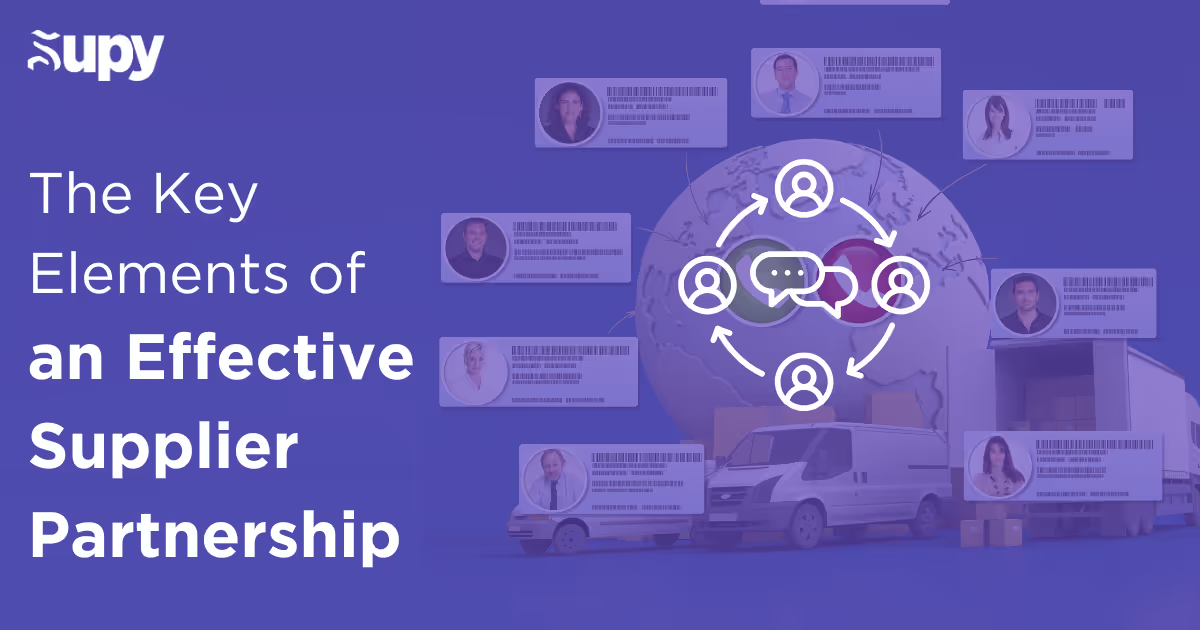
We’ve already gone over how building effective supplier partnerships is essential to both of your long-term mutual successes. But what are the benchmarks of such a relationship, exactly?
Open Communication and Clear Expectations
Effective communication has always been the steady foundation of a good supplier partnership. By clearly defining your objectives, timelines, and quality standards, you can make sure both parties are equally aligned on the same page. According to this McKinsey article on supplier alignment, regular meetings and transparent discussions about your goals and expectations can help foster a mutual understanding and avoid discrepancies.
Regular Performance Reviews and Quality Checks
Next, monitoring your supplier’s performance on a regular basis is an excellent way to maintain quality standards and identify areas for improvement. With a formal review process in place, you can ensure that suppliers meet their contractual obligations and provide opportunities to address any discrepancies promptly. This kind of proactive approach makes room for collaboration while minimizing risk.
Flexibility and Adaptation to Changing Needs
Strong partnerships thrive on the ability to adapt to ever-evolving market conditions and business demands. This includes accommodating changes in supply chain dynamics, product innovations, and shifts in customer requirements.
3. Strategies for Cultivating Excellent Supplier Partnerships
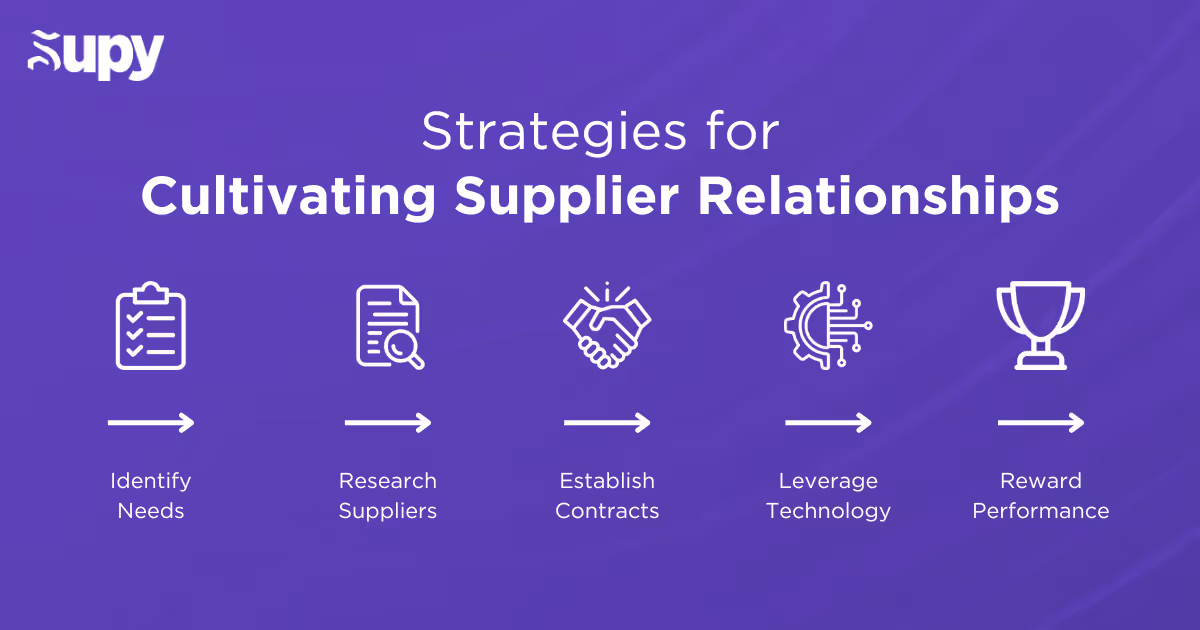
Now that you know the key qualities of a good supplier relationship, here’s how to put those changes into effect:
Vetting and Selecting the Right Suppliers
Begin by clearly identifying your restaurant’s specific needs, including key ingredients, their quality standards, and an optimized delivery schedule. With this new information in place, you can get set to researching the best supplier for your needs. While you conduct this research, keep an eye out on the supplier’s reputation for reliability, pricing structures, and customer reviews to ensure that they meet your expectations.
Establishing Balanced Contracts
When drafting new supplier contracts, it is important to run a cost-benefit analysis that allows you to strike the right balance between being cost-efficient and obtaining a quality product. Your business strategy should include negotiating terms that secure a competitive price for your business while ensuring a consistent supply and high-quality standards. You must clearly define your expectations and any delivery timelines at this point to establish mutual trust and accountability.
Leveraging Technology for Collaboration
Many multi-chain restaurants today use modern procurement platforms to streamline their communication and manage orders with their suppliers. Tools like supplier relationship management (SRM) systems can help you track your order history, monitor supplier performance, and send automated reminders for contract reviews. It’s a good idea to invest in technological tools, as these can help you ensure transparency, minimize errors, and foster a smoother collaboration altogether.
Recognizing and Rewarding Good Performance
Lastly, it’s always a good idea to acknowledge a job well done! Make it a point to appreciate exceptional supplier performances to maintain motivation and strengthen the partnership. You can do this by providing a positive review, extending long-term contracts, or even offering collaborative opportunities like co-branding to emphasise your gratitude.
4. The Role of Technology in Supplier Relationship Management

According to Procurement Magazine and the Institute for Supply Management, technology is transforming supplier relationship management (SRM) everyday. Some of these key technological advancements include:
Tools for Inventory and Procurement Tracking
Many advanced SRM platforms now come with an integrated procurement and/or inventory management system, offering real-time tracking of stock levels and supplier deliveries. By using predictive analytics, businesses can anticipate supply chain needs, reducing inefficiencies and ensuring consistent quality.
Real-Time Analytics for Supplier Performance
SRM systems are also designed to capture key performance indicators (KPIs) like delivery timeliness, quality metrics, and compliance. Certain platforms, like Icertis, use AI to analyze contracts and identify risks or inefficiencies in supplier operations. This data-driven approach enables informed decisions on supplier selection and improvement initiatives, thus contributing to your overall cost savings.
Centralized Communication and Order Management
Last but not least, SRM platforms also centralize your communication channels, replacing the tedious traditional process of email exchanges with real-time messaging, document sharing, and collaborative dashboards. This reduces errors and enhances transparency, fostering stronger supplier partnerships.
5. Case Study of a Successful Supplier Partnership
In this section, we’ll highlight the notable example set by McDonald’s and Keystone Foods, and how this strategic supplier collaboration has helped the fast food chain achieve its goals.
McDonald’s long-standing partnership with Keystone Foods highlights the importance of developing a strongly integrated supply chain. Keystone Foods supplies McDonald’s with high-quality chicken products, ensuring consistency across all of the chain’s global outlets. By aligning on quality standards and streamlining their logistics, this collaboration has supported cost-effective food production while never straying from McDonald’s strict quality benchmarks.
Key Strategies:
- Joint Business Planning: Both McDonald’s and Keystone Foods made sure to always stay aligned on their short- and long-term goals, ensuring mutual benefit.
- Technological Integration: McDonald’s employed advanced systems, such as real-time data monitoring, to improve its supply chain visibility and operational efficiency.
- Transparency and Trust: Finally, by establishing open communication channels with their suppliers, McDonald’s was able to facilitate better collaboration and innovation in all its chains around the globe.
Outcomes: The McDonald’s-Keystone partnership helped the former achieve global scalability without ever compromising on their quality of food. Their example demonstrates how supplier partnerships can be transformative for your business when they are anchored in strategic alignment for mutual benefit.
6. How to Overcome Common Supplier Relationship Challenges
According to Inbound Logistics, it’s important to address any challenges you may face with your supplier proactively in advance in order to ensure consistent quality and achieve cost efficiency. Below are some common challenges you may face, as well as strategies to solve them ahead of time:
- Inconsistent Quality: To tackle fluctuations in supplier quality, businesses should implement rigorous quality control measures and conduct regular audits. Be sure to establish clear communication about your quality expectations in advance. You may even want to submit your supplier’s performance metrics to help them see where they can improve on aligning with your standards.
- Price Fluctuations: Volatility in pricing can disrupt your restaurant’s budgets and profitability. Try to negotiate long-term contracts with your supplier that contain fixed pricing structures. This should provide you with some sense of stability. You can also engage multiple suppliers at a time so as to increase your leverage during the price negotiation process. Additionally, investing in supplier relationship management (SRM) software can help businesses monitor market trends and anticipate any impending changes.
- Supply Disruptions: Supply chain disruptions due to logistical issues, geopolitical events, or natural disasters can all severely impact your operations. By building a diverse supplier base and maintaining a contingency plan, you can mitigate your risks and keep your bases covered. With a strong communication system in place, you ensure your suppliers are quick to inform you of, and adapt to, any sudden disruptions.
- Conflict Resolution and Renegotiations: Address disputes by establishing clear protocols for conflict resolution beforehand. By regularly reviewing your agreements, you ensure that they remain fair and viable for both parties, particularly during economic downturns.
Economic Resilience: Unfortunately, economic challenges can strain your supplier relationships. You can support your key suppliers through shared cost-saving initiatives or flexible payment terms. This fosters goodwill and ensures long-term mutual benefit.
7. The Long-Term Benefits of Strong Supplier Relationships
According to Pondview Consulting and the Supply Chain Toolbox, businesses that prioritize robust supplier partnerships reap several enduring benefits. We’ve outlined these below:
Enhanced Operational Efficiency and Cost Savings
Close collaboration with suppliers allows companies to streamline their procurement processes, reduce redundancies, and optimize inventory management. Such partnerships promote cost efficiency by enabling bulk purchasing, reducing lead times, and jointly identifying cost-saving opportunities.
Adaptability to Market Trends
Suppliers deeply engaged in a company’s strategy can offer insights into market shifts and collaborate on innovative solutions. This dynamic approach helps businesses remain agile and responsive to market changes.
Investing in supplier relationships ultimately reduces supply chain risks, enhances flexibility, and ensures sustained business growth.
8. Supy's Role in Building Strong Supplier Relationships
Supy offers several comprehensive services designed to help you in your journey to restaurant management. Our expertise in the food and beverage industry means we understand the unique challenges you face and can provide tailored solutions to meet your needs.
Here’s how Supy is designed to help:
Purchasing Ingredients Has Never Been Easier: One of the best parts of installing the Supy app is how it lets you centralize all your ingredients and suppliers under one roof! Now you can review your order totals, edit items, and approve drafted purchases on-the-go!
Create Categorized Purchase Orders: Take the hassle out of ordering ingredients for your team by collecting items sourced by different suppliers under their own categories. If you find yourself regularly sourcing items from the same supplier, Supy will even let you set them as a preferred supplier to accelerate the purchasing process! How’s that for building a smoother supply chain?
Order To Par & Never Over Or Understock on Items Again: In the Supy app, you can now set a par and minimum level for each item in your inventory. Set personalized alerts that notify you when items go below par and order the exact quantity of all items you need during your next procurement operation—all with a single click!
9. Conclusion
In conclusion, prioritizing supplier relationships as a strategic business decision is key for restaurants looking to thrive in an increasingly competitive market. Building these partnerships requires a proactive approach, including transparent communication, regular performance reviews, and leveraging technology to streamline operations and enhance collaboration. A focused investment in these relationships pays dividends in terms of cost savings and operational efficiency.
To stay updated on the latest trends on sustainability in restaurants, sign up for Supy's newsletter. And for a more hands-on approach, why not book a free demo?
With the right tools and strategies, restaurants can take their supplier partnerships to the next level, achieving both quality consistency and cost efficiency. Explore Supy’s solutions today to optimize your supplier relationship management and gain a competitive edge in the industry.
10. About Supy
Supy is the best restaurant inventory management software platform tailored for multi-branch restaurants and franchises. With features like real-time inventory tracking, smart procurement systems, and advanced analytics, Supy helps restaurants manage their various demands effectively and provides the tools restaurants need to thrive in a dynamic industry.
For the latest expert insights, download Supy’s ebook: The Ultimate Guide to Reducing Food Costs in Multi-Branch & Enterprise Restaurants.
Ready to find out more? Schedule a demo with Supy today and take the first step towards a streamlined, profitable future.
Related Resources
